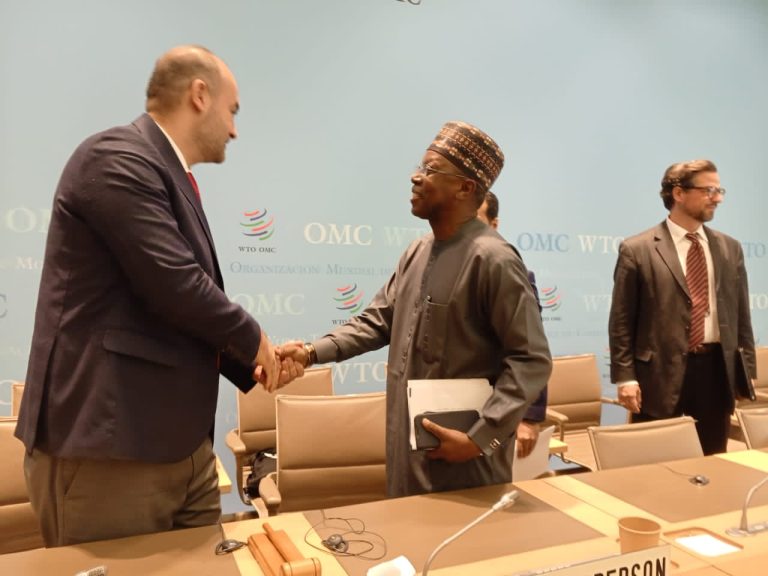The World Trade Organization (WTO) has urged Nigeria to review its customs procedures, highlighting concerns over high inspection rates and trade delays that hinder efficiency. The WTO’s Trade Policy Review (TPR) body expressed concern about the excessive physical inspection of containers at Nigerian ports and recommended reforms to streamline customs practices for faster and more cost-effective trade operations.
The WTO also raised issues related to Nigeria’s longstanding import bans on various agricultural products, as well as high tariff rates and additional levies. These measures, the organization warned, could exacerbate food insecurity, inflate food prices, and discourage private sector investment in agriculture.
During the recent TPR of Nigeria, members highlighted the country’s challenges with outstanding notifications, including on anti-dumping, agriculture, subsidies, state trading enterprises, and import licensing. The WTO encouraged Nigeria to address these gaps and improve transparency in its trade policies.
Ambassador Adamu Abdulhamid, Nigeria’s Ambassador to the WTO and Chairperson of the TPR Body for 2024/2025, emphasized that the review presented a valuable opportunity to assess Nigeria’s trade policy developments since its last review in 2017. In his closing remarks, Abdulhamid acknowledged Nigeria’s significant participation and proactive role in the WTO, especially in ratifying agreements on fisheries subsidies, TRIPS, and e-commerce.
Ambassador Nura Rimi, Nigeria’s Permanent Secretary for Industry, Trade, and Investment, noted that the country’s recent economic reforms, such as removing fuel subsidies and introducing a market-driven foreign exchange rate, were crucial steps in improving the macroeconomic and business environment. He added that Nigeria’s ongoing trade facilitation efforts, including a new customs code and a streamlined customs procedure, were recognized by WTO members.
However, the WTO recommended that Nigeria address the high rate of container inspections and outdated import prohibitions, particularly on agricultural goods. The review also covered Nigeria’s tariff commitments, urging the country to bind more tariff lines and reduce bound rates to improve trade predictability.
The WTO body expressed appreciation for Nigeria’s efforts to empower women economically and support digital trade through new legislation on data protection and electronic signatures. Furthermore, members recognized Nigeria’s role in regional integration through organizations like ECOWAS and the African Continental Free Trade Area (AfCFTA).
In conclusion, Nigeria’s active engagement in the WTO discussions was praised, and the review’s suggestions are expected to inform further policy improvements aimed at boosting trade efficiency and economic growth.

